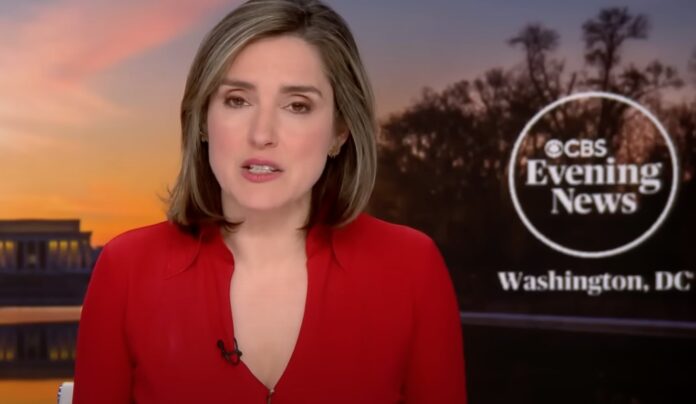Vice President JD Vance didn’t hold back Sunday after CBS News anchor Margaret Brennan made a controversial remark about free speech and the Holocaust. He called the exchange “crazy” and took to social media to express his outrage.
The controversial exchange
The heated moment took place on CBS’ Face the Nation. Brennan questioned Secretary of State Marco Rubio about Vance’s recent speech at the Munich Security Conference. In that speech, Vance warned that free speech and democratic institutions were under threat. However, Brennan seemed to connect free speech with the Holocaust, suggesting that it was weaponized to carry out genocide.
She remarked, “He was standing in a country where free speech was weaponized to conduct genocide,” referring to Nazi Germany, adding that Vance’s speech tone was changing the conversation. But her words quickly drew backlash.
Marco Rubio defends Vance
Rubio immediately pushed back. He disagreed with Brennan’s assertion, stating, “Free speech was not used to conduct a genocide.” He explained that the Holocaust was carried out by a Nazi regime that had no tolerance for free speech. In Nazi Germany, there was no opposition, Rubio emphasized, only a single ruling party.
Rubio made it clear: “That’s not an accurate reflection of history.”
JD Vance calls it “crazy”
Vance himself took to X (formerly Twitter), labeling the exchange a “crazy” moment. He posed a question that seemed to echo the thoughts of many: “Does the media really think the Holocaust was caused by free speech?”
The vice president’s reaction highlights just how out-of-touch Brennan’s comments appeared to many.
Vance’s Munich speech
Vance’s speech at the Munich Security Conference had already stirred controversy. In it, he criticized European politicians for limiting free speech and urged them to take stronger action against illegal immigration. He also raised concerns about attacks on basic liberties, citing the arrest of British citizen Adam Smith-Connor for praying near an abortion clinic.
Vance’s comments about this event were sharp. He argued that such actions “criminalize prayer” and show a dangerous trend of restricting freedom.
A bigger crisis: Europe’s internal struggles
Vance didn’t stop there. He boldly stated that Europe faces its own crisis, one of its making. He argued that European leaders were running “in fear of your own voters” and that it was causing more harm than good.
In his view, Europe needed to be honest with itself about its internal struggles. He also mentioned the European Union’s actions against so-called “disinformation” and “misinformation,” drawing parallels with communist-era tactics.
Trump’s views on European security
In addition to his critique of European leadership, Vance echoed former President Trump’s stance on European security. Trump’s administration, Vance said, believed in a “reasonable settlement” between Russia and Ukraine. However, Vance emphasized that Europe’s biggest threat wasn’t external—it was internal.
He warned that the continent was abandoning its fundamental values. These values, Vance argued, were shared with the United States. If Europe didn’t stay true to these principles, it would face even greater challenges in the future.
The larger context: A call for values
Vance’s message was clear: Europe must return to its core values if it hopes to secure a future of stability and freedom. His remarks struck a chord with those who believe that the erosion of democratic principles is a growing problem, not just in Europe but around the world.
By linking his critiques of free speech with the defense of basic liberties, Vance aimed to spark a conversation about the state of democracy itself. The fallout from his speech, along with the fiery exchange with Brennan, will likely continue to fuel debates for some time to come.
JD Vance’s outspokenness against what he saw as a misinterpretation of history, coupled with his criticism of European leaders, has sparked a firestorm. Whether or not you agree with his views, one thing is certain—Vance is not afraid to challenge the status quo. His fight for free speech and fundamental values is just beginning.




